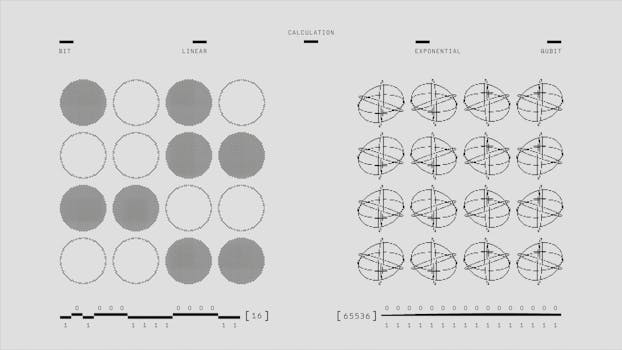
Understanding Quantum Mechanics and Its Implications for Reality
Introduction to Quantum Mechanics

Quantum mechanics is a branch of physics that studies the behavior of matter and energy at an atomic and subatomic level. At these scales, the classical laws of physics no longer apply, and strange, seemingly random phenomena begin to occur. Quantum mechanics seeks to explain these phenomena and has led to a deeper understanding of the nature of reality itself.
Key Principles of Quantum Mechanics

Several key principles form the foundation of quantum mechanics, including wave-particle duality, superposition, and entanglement. Wave-particle duality suggests that particles, such as electrons, can exhibit both wave-like and particle-like behavior depending on how they are observed. Superposition allows particles to exist in multiple states simultaneously, which is a fundamental aspect of quantum computing. Entanglement describes the phenomenon where two or more particles become connected in such a way that the state of one particle is directly affected by the state of the other, regardless of the distance between them.
Implications for Reality

The implications of quantum mechanics for our understanding of reality are profound. If particles can exist in multiple states at once and are connected across vast distances, it challenges our classical notion of space and time. It also raises questions about the role of observation in shaping reality, as the act of measurement itself can change the state of a particle. Furthermore, quantum mechanics introduces an inherent uncertainty principle, where certain properties of particles, like position and momentum, cannot be precisely known at the same time.
Quantum Mechanics in Everyday Life

While quantum mechanics may seem like an abstract concept with little relevance to everyday life, it underpins many modern technologies. Transistors, the building blocks of modern electronics, rely on quantum principles to control the flow of electric current. Laser technology also depends on the quantum behavior of light, and magnetic resonance imaging (MRI) machines use quantum mechanics to create detailed images of the body.
Conclusion

In conclusion, understanding quantum mechanics is crucial not only for advancing scientific knowledge but also for grasping the fundamental nature of reality. Its principles, though complex and sometimes counterintuitive, have led to numerous technological innovations and continue to inspire new areas of research. As we delve deeper into the mysteries of the quantum world, we are reminded of the awe-inspiring complexity and beauty of the universe around us.




